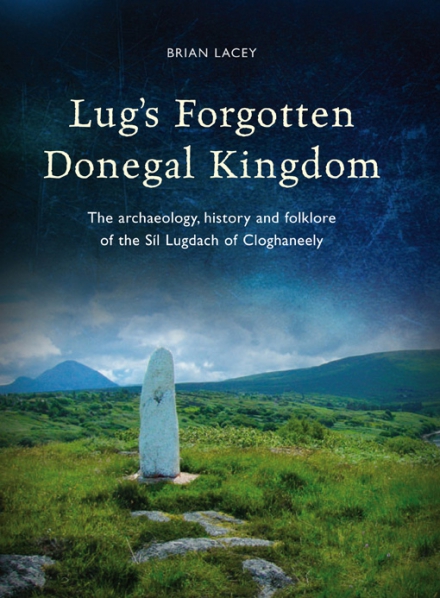Lug's forgotten Donegal kingdom
The archaeology, history and folklore of the Síl Lugdach of Cloghaneely
Brian Lacey
‘Folklore and mythology from Donegal are given the full academic treatment in the very detailed book on Lug’s forgotten kingdom … the book is admirably put together. The dense but immensely informative text is complimented by good, clear photographs and maps and the book is topped off with an excellent bibliography and index. In other words, a perfect confection', Hugh Oram, Books Ireland (Summer 2013).
‘[Lacey’s] deep knowledge of the landscape and archaeology of the region makes for some interesting insights on its Christianisation … The accompanying photographs also give a good feel for the landscape', Nancy Edwards, Journal of Medieval Archaeology (2013).
‘[This book is] a useful repository of information on early Irish kingship and should be seen as a worthy companion piece to Lacey’s 2006 work: Cenél Conaill and the Donegal kingdoms, AD500-800’, Thomas Kerr, The Archaeological Journal (2013).
'Clearly much time and resources have been spent in producing this handsome, well-illustrated book', Books Ireland (November 2012).
‘Although a local study, the volume’s findings have wider-reaching implications since it forms a case study of the history of early medieval Christianity … The most immediately striking thing about Lacey’s book is its presentation. The maps and illustrations produced within are a highlight, beautifully situating Lacey’s argument … Lug’s forgotten Donegal kingdom aspires to explain how pagan areas adapted to the new cultural force of Christianity … The strengths of this volume lie in archaeology and folklore. Using these sources of evidence, Lacey convincingly argues that the residents of this area kept their identification with the god Lug alive for many centuries thanks to the appropriation of saints Colum Cille and Beaglaoch, which permitted them successfully to merge their pagan and Christian identities’, Vicky McAlister, Studia Hibernica (2014).
